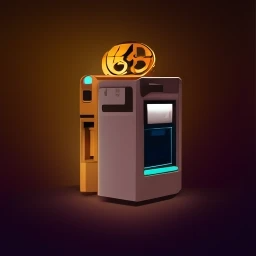Cryptocurrencies of a Decentralized Crypto Exchange have ushered in a transformative era of innovation within the financial industry. Among the many developments, decentralized crypto exchanges (DEXs) stand out as a revolutionary approach to trading digital assets. Unlike centralized platforms, these exchanges operate without a central authority, enabling peer-to-peer transactions directly on the blockchain. But what exactly makes decentralized crypto exchanges so compelling, and what challenges do they face in today’s rapidly evolving market?
What is a Decentralized Crypto Exchange?
Decentralized crypto exchanges empower users to trade cryptocurrencies directly with one another, removing the reliance on third-party intermediaries to manage transactions. Instead, these exchanges utilize blockchain technology and smart contracts to automate the process, ensuring transparency and security.
In a traditional centralized exchange, users deposit their funds into a platform-controlled wallet, trusting the exchange to safeguard their assets. However, decentralized crypto exchanges remove this intermediary, allowing users to maintain control of their private keys and assets at all times. This fundamental difference has made DEXs an attractive choice for many in the crypto community.
Benefits of Using a Decentralized Crypto Exchange
- Enhanced Security
A key advantage of decentralized crypto exchanges lies in the enhanced security they provide. By keeping control of their private keys, users significantly reduce the risk of hacking incidents that are common in centralized exchanges. Furthermore, DEXs rely on immutable blockchain technology, which adds another layer of protection. - Anonymity and Privacy
Users of decentralized crypto exchanges often need to provide only minimal personal information.. This feature attracts users who prioritize privacy and value anonymity in their transactions. In an age of increasing data breaches, the ability to trade without providing sensitive information is a significant benefit. - Global Accessibility
Decentralized exchanges are inherently borderless, allowing anyone with an internet connection and a crypto wallet to trade. Unlike centralized platforms, they do not restrict access based on geographic location or regulatory hurdles, making them a truly global solution for cryptocurrency trading. - Reduced Costs
By eliminating intermediaries, decentralized crypto exchanges can offer lower transaction fees compared to their centralized counterparts. This cost-efficiency is particularly beneficial for high-frequency traders or those dealing with smaller transactions. - Censorship Resistance
With no central authority, decentralized crypto exchanges are inherently resistant to censorship. Governments and other entities find it challenging to impose restrictions or shut down operations, providing a level of freedom not typically seen in traditional financial systems.
Challenges Facing Decentralized Crypto Exchanges
While offering numerous benefits, decentralized crypto exchanges encounter several hurdles that hinder their broader adoption.
- Liquidity Issues
Many decentralized exchanges struggle with low liquidity, making it difficult for users to execute large trades or find favorable prices. While some platforms have implemented liquidity pools to address this, it remains a significant obstacle compared to centralized exchanges with vast user bases. - User Experience
Decentralized crypto exchanges can be technically complex, posing a challenge for newcomers to navigate and use effectively. Managing private keys, understanding smart contracts, and navigating decentralized interfaces require a level of technical knowledge that many users lack. Simplifying the user experience is crucial for attracting a broader audience. - Speed and Scalability
Transactions on decentralized exchanges rely on the underlying blockchain, which can result in slower processing times compared to centralized platforms. Scalability issues on popular blockchains like Ethereum can further exacerbate delays during periods of high network congestion. - Limited Features
While centralized exchanges often offer advanced trading tools, margin trading, and other financial instruments, decentralized crypto exchanges typically provide a more limited feature set. Expanding these capabilities without compromising the decentralized nature of the platform is a significant challenge for developers. - Regulatory Uncertainty
The lack of regulation in the decentralized exchange space can be both a benefit and a drawback. While it allows for greater freedom, it also creates uncertainty for users and developers. Governments worldwide are beginning to explore how to regulate these platforms, which could impact their operations in the future.
The Future of Decentralized Crypto Exchanges
As blockchain technology continues to mature, decentralized crypto exchanges are likely to evolve and address many of their current limitations. Innovations such as Layer 2 scaling solutions, cross-chain interoperability, and improved liquidity mechanisms are already making strides toward enhancing the functionality and accessibility of DEXs.
Moreover, the growing demand for self-sovereignty and privacy in financial transactions positions decentralized crypto exchanges as a vital component of the broader crypto ecosystem. While challenges remain, the potential of DEXs to democratize access to financial services and promote financial inclusion cannot be underestimated.

















